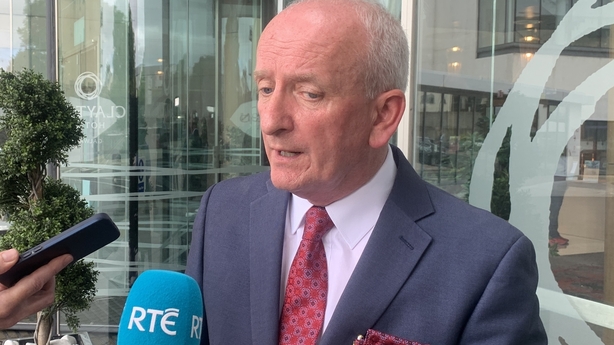The Public Accounts Committee has heard that the highest paid staff member in the Health Service Executive received almost €1 million in total remuneration last year.
Seamus McCarthy, the Comptroller & Auditor General, said the payment included almost €700,000 for treating patients outside normal hours, under non-standard contract terms.
Chief Executive of the HSE Bernard Gloster told the committee that there is a contractual provision for consultant call-outs, which can lead to payments.
He said that in his assessment, these payments were never intended to accumulate to the level that they have.
Mr Gloster said that the majority of very hard working staff, including consultants, provide on call services that do not come into this category.
He said the Comptroller & Auditor General report and the HSE's own financial statements show that ten employees were paid in excess of €500,000 last year.
He said that remuneration and the rules pertaining to it are set externally to the HSE and pay scales and the new consultant contract will contribute to the number of high earners over time.
He also said health regions have been given the power to convert 500 positions from agency to staff posts, which will take around three months.
PAC Chairperson Mairéad Farrell said HSE spending on agency staff had risen from €350 million a few years ago to €650 million and was still rising.

The PAC also heard that Covid-19 vaccines that had been acquired at a cost of €86.5 million were written off last year by the HSE.
Mr McCarthy said that the cumulative Covid-19 write-off to the end of last year is €181 million, representing 40% of the total cost incurred on Covid-19 vaccines.
He told the committee that the HSE also held stocks of antigen tests that cost €12.5 million at the end of last year, which were expected to reach their expiry date before they could be used.
Mr McCarthy said that last year, storage costs for Personal Protective Equipment and hand gel amounting to €2.3 million had been generated.
Mr Gloster also told the committee that he anticipates it will be around seven more years before the HSE can ensure that everyone has an Electronic Health Record.
He said the system was being built up and that before then, people would have access to an app with a lot of information pertinent to them.
Separately, Mr McCarthy told the committee that the costs to date of a new HSE Integrated Financial Management System (IFMS) has been €136 million.
He said that the case study for the system submitted by the HSE in May 2015 to the Department of Health was €82 million for capital and once-off costs, and €50 million in recurrent spending for system support over an eleven year period.
In late 2022, the HSE told the department that additional capital funding would be required.
Mr Gloster told the committee that the system went live in July 2023 for certain areas and will be rolled-out for the remaining areas in two phases next April and July, at which point 80% of the total health budget will go through the IFMS.
The roll-out to include voluntary organisations will start mid 2026.
Mr Gloster said the system will provide better and more timely financial reporting and forecasting, improved financial management, governance, compliance and transparency and a better overall financial control environment.







